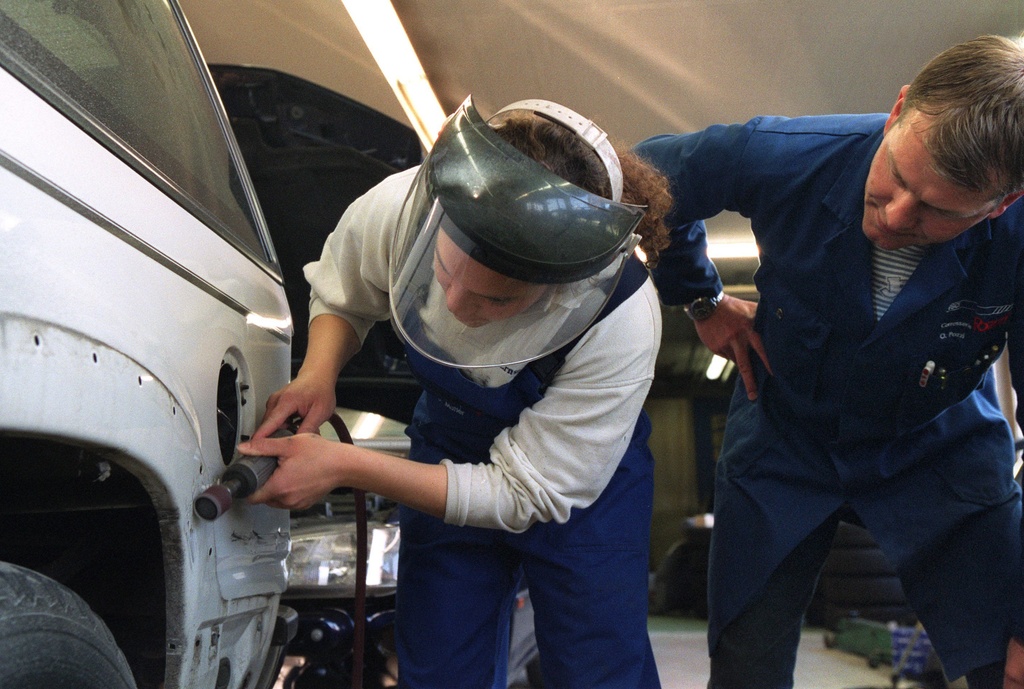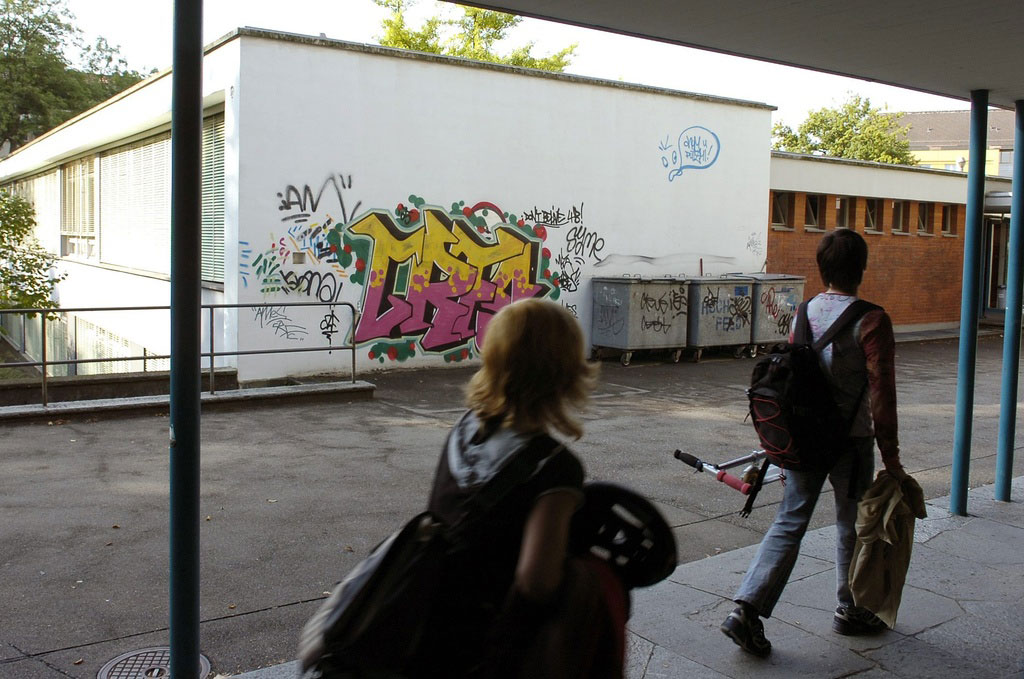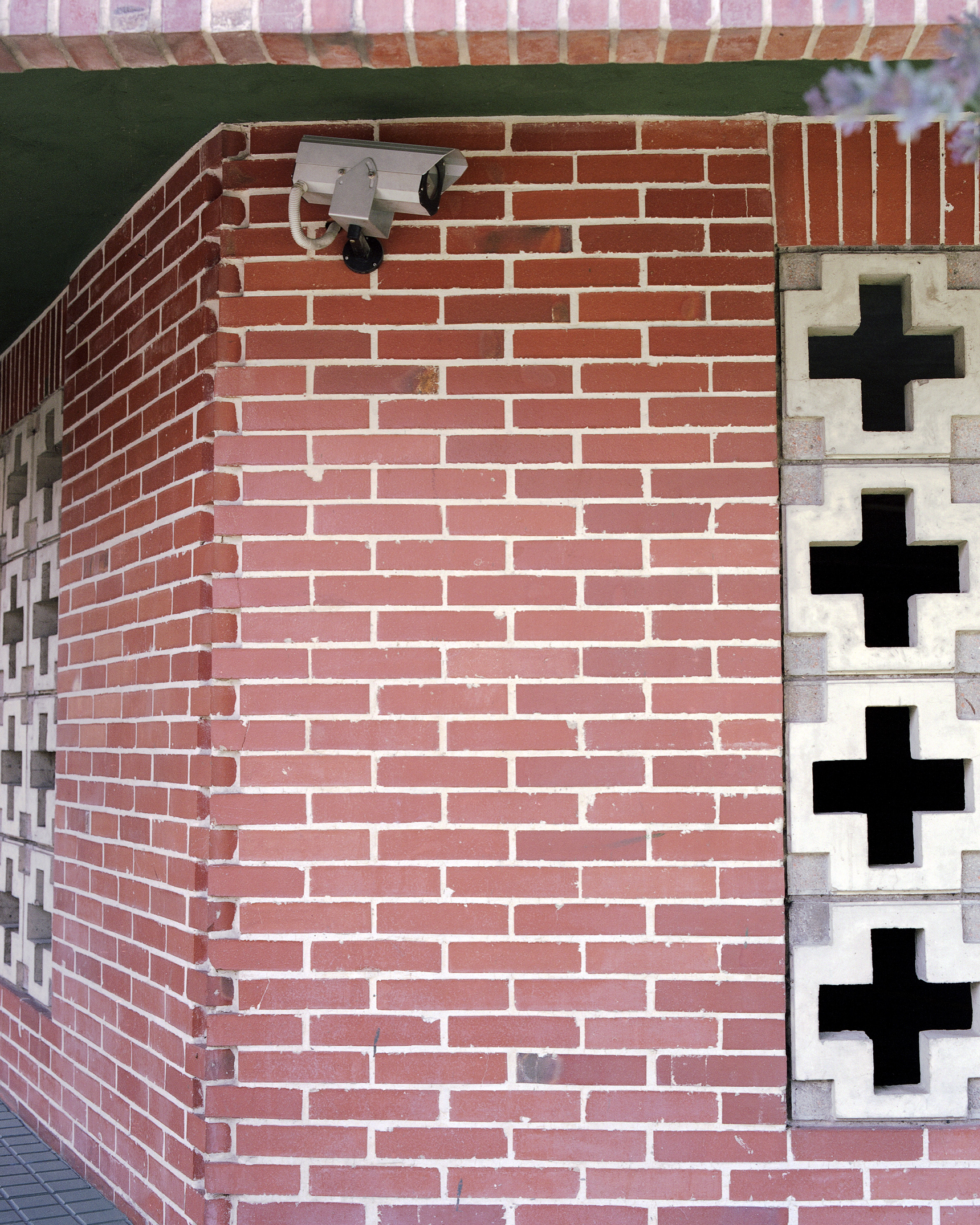Ex-illegal immigrant shares her story

It is estimated that Switzerland is home to 70,000-180,000 illegal immigrants. One of them was Colombian Annalilia Sanchez, who has shared her story with swissinfo.ch.
Sanchez, now 41, managed to live in Switzerland illegally for 14 years before she received a much-desired residence permit three months ago after applying as a hardship case.
“This residence permit is the best gift ever – I can still hardly believe my luck,” Sanchez* tells swissinfo.ch, her eyes shining. Yet the old fear of being discovered and deported still lingers.
“If I pass a police officer or there’s an unexpected knock at the door, I still get jumpy. Illegal immigrants live as though they’re in prison,” confesses the petite woman with curly dark hair.
Without proper papers, you can neither rent an apartment nor sign up for mobile phone service – never mind visit the doctor.
Sanchez, dressed in jeans and a grey sweatshirt, tells the story of a friend who broke her leg but didn’t dare go to hospital. Thanks to the support of an organisation that helps illegal immigrants, Sanchez has had health insurance for a couple of years.
Ten francs for four words
Her German is very good – she says she’s been working on it since she came to Switzerland. Sanchez, who admits that she doesn’t know much about politics, concedes that it would be hard to “legalise” all immigrants.
Yet in her view, each case should be examined individually: “We’re not just illegal immigrants; we are people with hearts and families.”
Sanchez adds that she doesn’t understand why foreigners can’t do domestic and garden work, considering that so few Swiss people are willing to do it.
It was work that brought Sanchez to Switzerland 14 years ago. Her cousin, working as a cleaner here, was expecting a child.
Sanchez jumped in to take her place – and the women settled in a small attic apartment without a kitchen or a shower. Neither could speak the local language.
In the beginning, Sanchez could only afford to buy phone cards worth about ten francs. Yet after exchanging just three or four words with her mother and daughter in Colombia, the credit ran out.
“I cried a lot at the beginning, but having to rely on myself made me strong,” Sanchez remembers.
A tough life
Sanchez comes from a very poor family. Her mother worked as a washerwoman – not with a machine, but with soap and a rock. When she became ill, Sanchez had to drop out of school and get a job.
Her father suffered a fatal accident at the age of 49. This left the six-child-family without money or any prospects.
Sanchez, herself a single mother without an education, wanted a better life for her own daughter. Yet she has had to make a lot of sacrifices.
Her daughter, who stayed behind in Colombia with her grandmother, has only visited Switzerland three times. As Sanchez recalls, “I thought about her all the time. That gave me strength.”
Thanks to her work as a cleaning lady for a doctor’s family, Sanchez has been able to support her mother financially and send her daughter to school.
“If I had stayed in Colombia, I wouldn’t have been able to help my family,” Sanchez concludes. Her daughter now supports herself as a flight attendant.
A sad country
Switzerland isn’t for everybody, according to Sanchez. She knows a lot of foreigners who are unable to cope with the change of climate and mentality; many suffer from depression.
“In comparison to Colombia, Switzerland is a rather sad country,” Sanchez says. She finds that people don’t smile very often, that the sun doesn’t shine much and that the streets are often dead quiet.
“Many people in Switzerland have a lot of money but not much motivation to make something of their lives,” Sanchez finds. “But why shouldn’t I go through life with a smile on my face? I’m healthy and I have work, a warm bed and a hot soup – not everybody can say that.”
She denies that she was ever used or discriminated against as an illegal immigrant. But after a moment’s silence she tells of others who worked under the table but were not paid for their labours.
For example, a seamstress friend worked day and night to finish clothing and curtains, but was never paid the SFr6,000 ($6,220) owed to her.
Indeed, Sanchez is one of the lucky ones. She hopes that her residence permit will help her to find a job in a hospital or in a factory.
She now sees her future in Switzerland rather than in Colombia, and dreams of owning her own house somewhere near Bern – her adopted home.
* Not her real name
The Federal Commission for Migration (CFM), which published a new study on Monday, is concerned about the situation of young people in families staying illegally in Switzerland.
It has presented several proposals to improve their situation; for example, allowing them to live independently and begin vocational training.
Currently, these young people can attend school up to university, but are not allowed to do an apprenticeship.
This issue is also a topic in parliament. Recently, both houses passed a motion calling on the government to pass legislation so that young immigrants can learn a trade.
The CFM also believes that it is urgent to harmonise procedures for hardship cases, thus ensuring equality of treatment.
One solution would be to reverse the roles: the applications should no longer be forwarded directly to the cantons, but rather to the federal government, which would ask the cantons to decide.
The estimated number of undocumented migrants in Switzerland ranges from 70,000 to 180,000.
A 2004 study conducted by the Federal Migration Office concluded that 90,000 people were living in Switzerland without a residence permit.
The majority of illegal immigrants live in large cities or in purely agricultural areas.
A portion of them are people who have gone into hiding after their asylum applications were rejected.
In 2008 the Council of Europe stated that there were about five million illegal immigrants living in Europe as a whole.
According to the UN, 214 million people are affected worldwide.
(Translated from German by Susan Vogel-Misicka)

In compliance with the JTI standards
More: SWI swissinfo.ch certified by the Journalism Trust Initiative





You can find an overview of ongoing debates with our journalists here. Please join us!
If you want to start a conversation about a topic raised in this article or want to report factual errors, email us at english@swissinfo.ch.